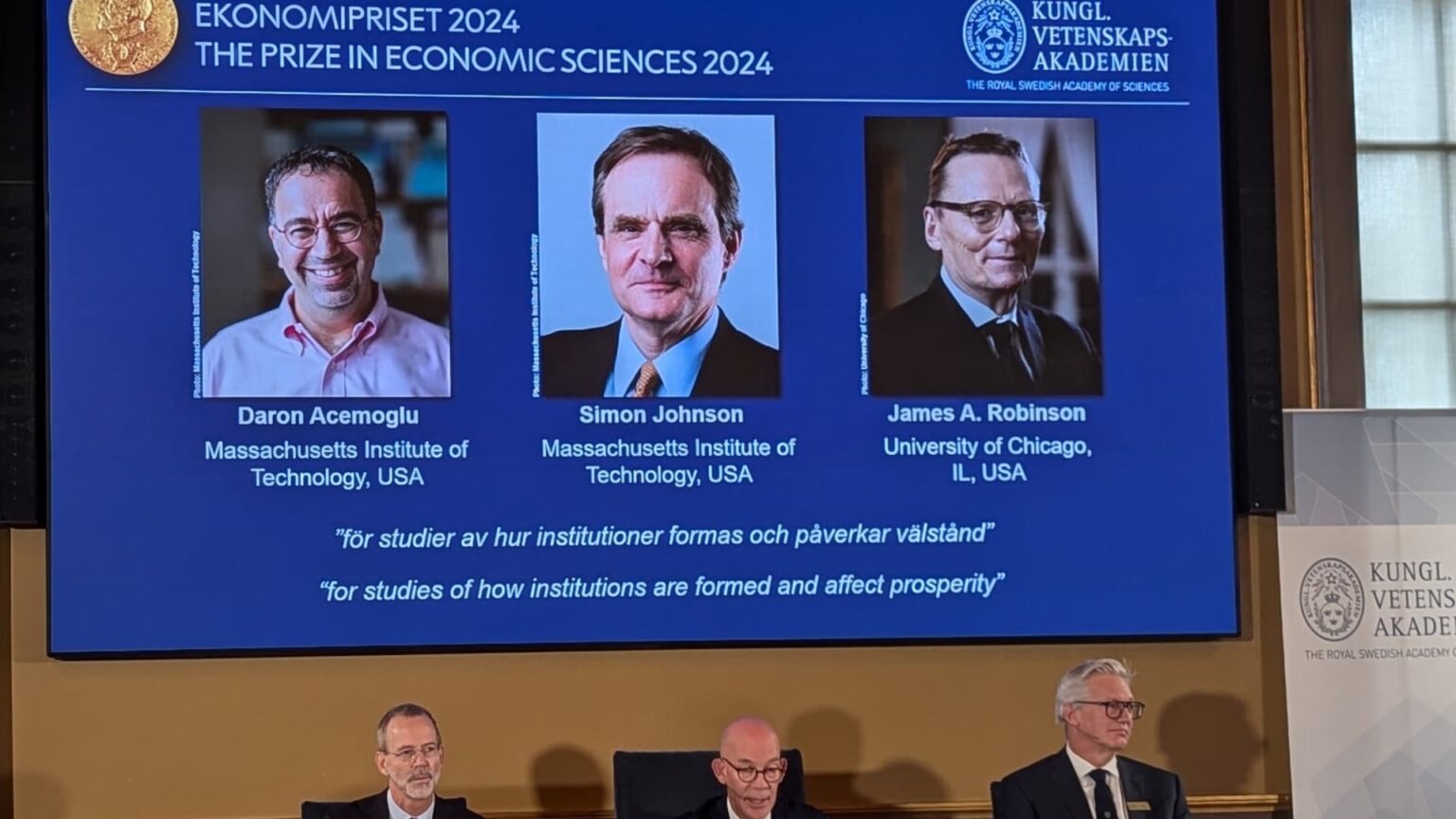U.S.-based economists Daron Acemoglu, Simon Johnson and James Robinson were awarded the Nobel prize in economic sciences on Monday for their work on wealth inequality between nations.
The academics have helped show why societies with “poor rule of law and institutions that exploit the population do not generate growth or change for the better,” the Nobel committee said, demonstrating the “importance of societal institutions for a country’s prosperity.”
Acemoglu and Johnson are professors at the Massachusetts Institute of Technology, while Robinson is director of the University of Chicago’s Pearson Institute for the Study and Resolution of Global Conflicts with a specialism in the economies of sub-Saharan Africa and Latin America.
Acemoglu and Robinson wrote the popular 2012 book “Why Nations Fail: The Origins of Power, Prosperity, and Poverty,” which explores the roots of inequality and why some countries successfully gain wealth and influence.
The laureates have “pioneered new approaches, both empirical and theoretical, that have significantly enhanced our understanding of global inequality,” Jakob Svensson, director, and professor of economics at Stockholm University’s Institute for International Economic Studies, said during a press conference.
The question of why the gaps between poor and rich nations are so persistent is not new, but remains “among the most urgent in social sciences,” he added.
The winners of the award, officially called the “Sveriges Riksbank Prize in Economic Sciences in Memory of Alfred Nobel,” will receive 11 million Swedish kronor ($1.058 million) from the Swedish central bank.
The prize money will be shared equally among the winners — as was previously the case in 2022, when the reward was split between U.S.-based economists Ben Bernanke, Douglas Diamond and Philip Dybvig.
Economist and historian Claudia Goldin won the economics Nobel in 2023 for advancing understanding of women’s earnings and labor market outcomes.
The Nobel Peace Prize for 2024 was last week awarded to Japanese atomic bomb survivor organization Nihon Hidankyo, in recognition of its efforts to rid the world of nuclear weapons.
The other Nobel prizes, first awarded in 1901, are in Physics, Chemistry, Physiology or Medicine, and Literature.
The economic sciences prize was introduced in 1968 in honor of the 300th anniversary of the Swedish central bank, and it was first awarded a year later. The winner is chosen by the Royal Swedish Academy of Sciences in recognition of work of “outstanding importance.”
Read the full article here

